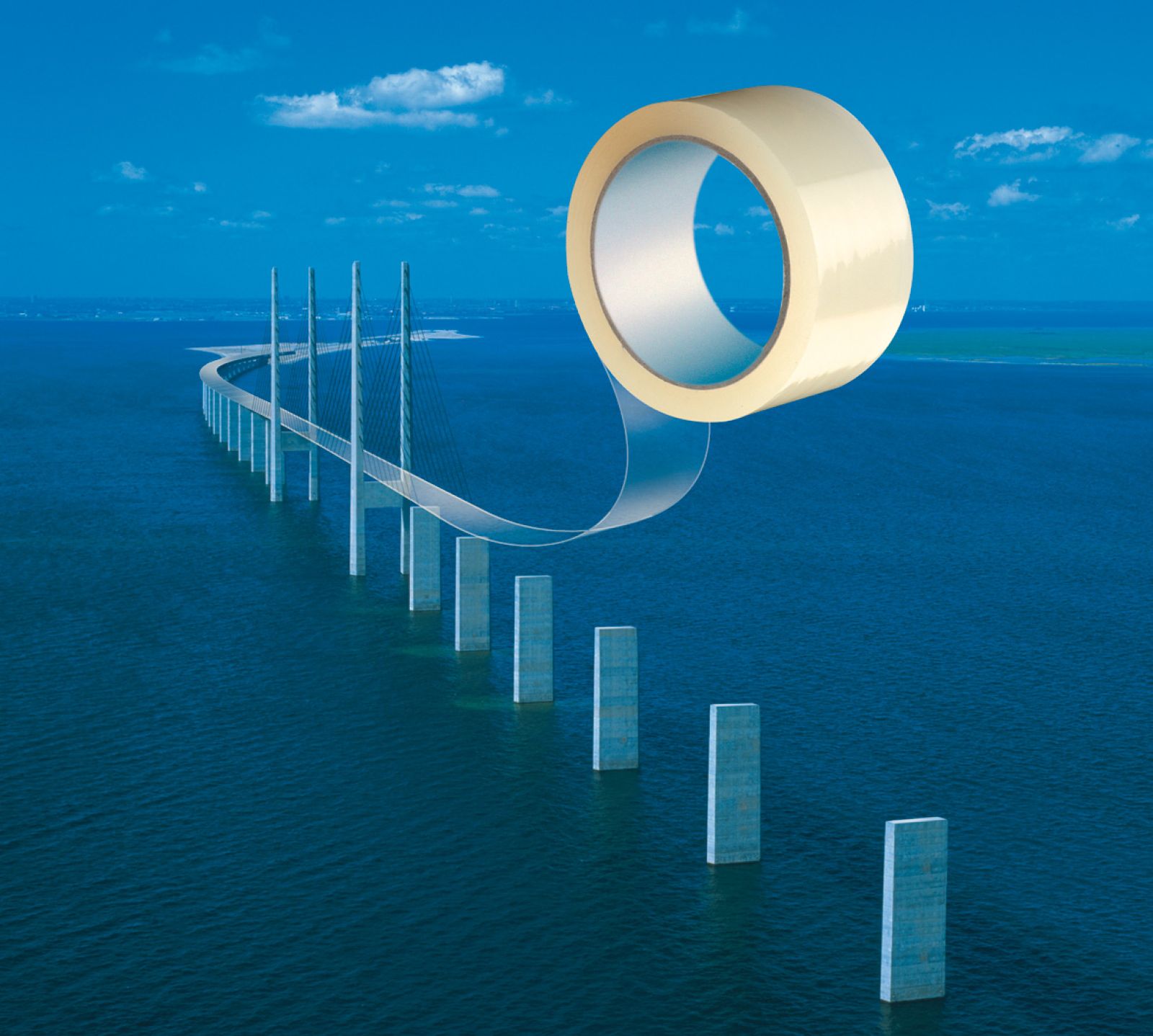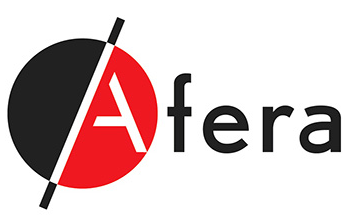
Afera ushers in co-creation dialogue, more co-operation within tape industry
Afera explored co-creating a sustainable value chain through tackling challenges with all relevant parties in recent Member Webinar
Two of Afera’s strategic goals are to “make the tape industry as a whole future-proof” and to “enable Member Companies to be one step ahead”. Tape industry leaders and innovators emphasise that the means by which the Industry can realise these goals include embracing sustainability, working more closely together and building transparency in our organisations.
Opportunities and challenges of co-creation in sustainability according to an authority in the field
 In a recent Webinar designed for Afera Members, Stefanie Jansen discussed realising a deep form of collaboration among businesses in the form of co-creation, which means working together with multiple parties to create something. Complete co-creation is the transparent process of value creation in ongoing, productive collaboration with and supported by all relevant entities, with end users playing a central role. Co-creation can be used in building your company, product development, optimising the B2B chain, creating marketing instruments, building H.R. strategy, hiring employees, influencing employee retention and customer development.
In a recent Webinar designed for Afera Members, Stefanie Jansen discussed realising a deep form of collaboration among businesses in the form of co-creation, which means working together with multiple parties to create something. Complete co-creation is the transparent process of value creation in ongoing, productive collaboration with and supported by all relevant entities, with end users playing a central role. Co-creation can be used in building your company, product development, optimising the B2B chain, creating marketing instruments, building H.R. strategy, hiring employees, influencing employee retention and customer development.
 Ms. Jansen, who is a trained psychologist and qualitative market researcher, co-authored the book The Seven Principles of Complete Co-creation, which describes how private- and public-sector organisations have worked with co-creation since the beginning of the 20th century. And although co-creation is a rising trend, it has experienced setbacks in recent years due to the strike back of the establishment and the pandemic.
Ms. Jansen, who is a trained psychologist and qualitative market researcher, co-authored the book The Seven Principles of Complete Co-creation, which describes how private- and public-sector organisations have worked with co-creation since the beginning of the 20th century. And although co-creation is a rising trend, it has experienced setbacks in recent years due to the strike back of the establishment and the pandemic.
The end user should be fully incorporated into the development process
Even though tape companies may be working as B2B players in the middle of the value chain, there are always end users, outlets where you can buy products, and suppliers of ingredients to make products, so there are various relevant parties which need to work together to create success. In co-creation, end users play an active role with and for organisations that are important to them. “The tendency might be to co-create just with the people and parties you already know,” explained Ms. Jansen. “But in the end, adding the end user really makes the difference, because that is ultimately your right of existence, so to speak.”
Customer connection pyramid
Ms. Jansen presented a roadmap for co-creation, which highlights connection with the customer: gaining knowledge about, understanding of and inspiration from end users, deepening insight into challenges and goals as a guide for development, defining co-creation projects and ultimately creating co-ownership, which is what is happening more and more. “When you get these deep insights, and you see where there are red threads that everyone shares, those are interesting potential co-creation projects,” shared Ms. Jansen. Organisations may start out doing this for product development, and then at some point it becomes automatic, and they find themselves doing it for every challenge they face as a company.
Shifting from a power to creation paradigm
Co-creation is seeing development against the backdrop of 3 primary societal tendencies causing a paradigm shift: moving from hierarchical dominance towards collaboration, from spending towards sharing, and from closed towards open. The development of the internet and social media has had a huge influence on igniting and accelerating these processes.
Should tape companies as well as an industry collective such as Afera change? An on-the-spot poll revealed that Webinar participants see Afera moving towards being a co-creative organisation. What are the drivers and barriers for tape companies and Afera in embracing co-creation? In  addition to those described by Ms. Jansen, especially fear of the unknown, respondents specifically cited concerns about confidentiality, discussion boundaries, and preservation of IP as the main barriers in our industry. Many tape-related companies in the market remain conservative in their approach, not wishing to share IP rights with other parties, especially market competitors, in joint application development because of past conflicts.
addition to those described by Ms. Jansen, especially fear of the unknown, respondents specifically cited concerns about confidentiality, discussion boundaries, and preservation of IP as the main barriers in our industry. Many tape-related companies in the market remain conservative in their approach, not wishing to share IP rights with other parties, especially market competitors, in joint application development because of past conflicts.
“I am a true believer that co-creation is the way we need to move into the future,” commented Anne-Marie Klink, technical manager of R&D of industrial tapes and adhesives at 3M Europe. “I think one of the biggest barriers is intellectual property, i.e. servicing around confidentiality rights.” Not only are there a lot of trade secrets of the production process that companies are not willing to divulge in co-creation, but the new developments under co-creation also come with IP issues. What if one party doesn’t wish to continue producing the product? Who will uphold the patent rights?
But Ms. Klink also sees some of the constraints of the past lifting and IP therefore as a driver, “because it can be very powerful to have co-owned IP rights.” She said that she sees “a lot more value in looking towards this and loosening up in this area,” and if we want to drive co-creation, “we have to look into developing models in which co-creation, even on the IP side, brings benefits to both parties.” According to Ms. Jansen, this is a “win-more scenario” in co-creation, in which every participant wins. A prerequisite to the co-creation process for the tape industry is trust, which can be created through putting a legal framework in place or adding a legal party to the process in some manner.

How do we as tape-related companies break the barriers to co-creation?
During the Q&A section of the Webinar, Afera President Evert Smit, director scouting at Lohmann GmbH & Co. KG., asked the question on everyone’s mind: How do we as tape-related companies break the barriers to co-creation? “For instance, in Afera’s Flagship Sustainability Project, we interact on many issues that are very close to our Member Companies,” said Mr. Smit. “They may not want to talk about it, but still everyone realises we are in this together. How do you suggest we do this?” According to Ms. Jansen, there has to be total commitment from the group involved to the shared mission and that they will do whatever it takes to accomplish it, whether that means mediating an agreement among Members on a basic level of openness/what information can be shared, signing a contract/putting a legal framework in place or divvying up costs, or all of the above.
This also means that within the extremely complex dynamics of an association, in which you have peers, competitors, customers and suppliers working together, a co-creation project needs to be well-defined. According to Ms. Jansen, this first step is extremely important, because the playing field, including its boundaries, needs to be set up. You need to create an open-ended co-creation question, so it gives rise to creativity within those agreed-upon parameters.
Mr. Smit also touched on the point that Member Company delegates may be reluctant to participate in Association discussions for fear that their company superiors would view their contribution as compromising their knowhow or market positions: “People are afraid,” he said. “It all boils down to trust, because when you have trust, you can’t have fear,” countered Ms. Jansen. “If people are participating here, and they are afraid of what others in their company might say, then this is an important conversation to have within your companies.” The answer is open communication and the acknowledgement that there is a shared mission, she said, and that we cannot do it alone.
Ms. Jansen is currently working with Mr. Smit and Afera Regulatory Affairs Manager Pablo Englebienne on incorporating co-creation into Afera’s Flagship Sustainability Project.
Afera is exploring co-operation on issues such as sustainability, recycling, technology development and regulation in our Member Companies, our European association, our global counterparts, and cross-industry and cross-value-chain initiatives in our upcoming Annual Conference themed “Full circle: How the tape industry stays relevant in a circular economy.”
Recording
The recording of the Webinar is available here using password: +U5b&Ka6. The presentation can be downloaded here.
Sign up for Afera’s next live online session
Go to Afera’s Annual Conference Website
Go to Afera’s sustainability pages
Learn more about Afera Membership

